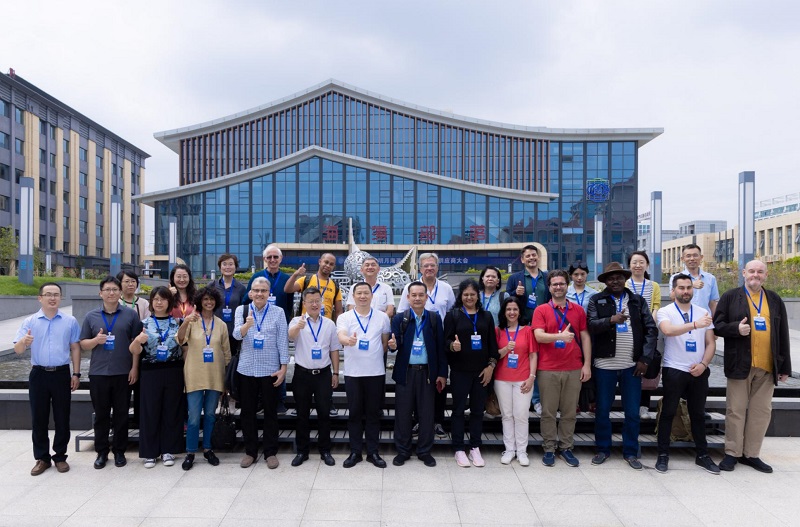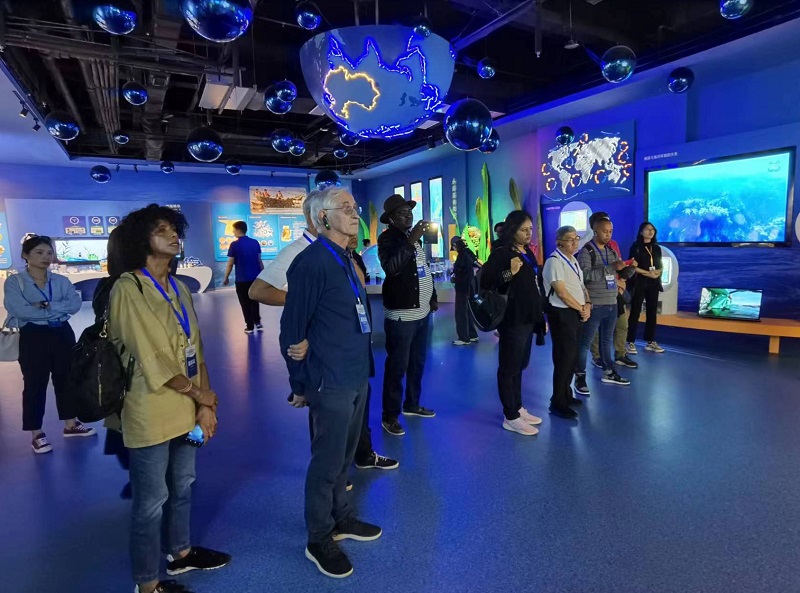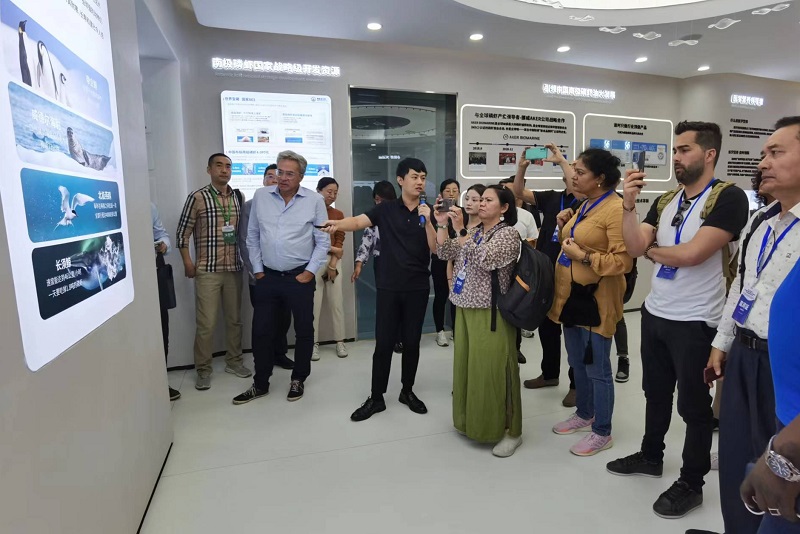Fijian Arpana Pratap is director of Blue Economy with the Pacific Islands Development Forum (PIDF), which works to conserve marine and freshwater environment while seeking sustainable economic growth by utilizing their resources. Fiji, a Pacific island country, is acutely sensitive to the impact of climate change. The rise of the sea level due to global warming is already posing a serious threat to some small islands in the Pacific Ocean. Pratap has noted changes in the marine ecology with fishery resources decreasing and fish species deteriorating.
“The environment is constantly changing as a result of climate change, even threatening the sustainable development of human beings,” she told China Today. “It is our common responsibility to protect the marine environment and develop the economy while safeguarding human rights to subsistence and development.”
She was one of the 15 foreign experts and scholars from 14 countries who visited Qingdao, a coastal city in east China’s Shandong Province from September 22 to 25, to learn about China’s practices in marine ecological protection and the development of its marine economy. They would also head to Beijing to attend the International Conference on Environment, Development and Human Rights: Marine Ecological Protection in the Process of Modernization on September 26.
She referred to China accumulating “a lot of valuable experience” in the sustainable development of its blue economy – which focuses on the sustainable use of ocean resources for economic growth, improving livelihoods, creating jobs, and preserving the health of the marine and coastal ecosystem.
During their Qingdao tour, the group visited Qingdao Bright Moon Seaweed Group, a high-tech company engaged in a range of activities, from developing seaweed extractions to making medical dressings with alginates, a compound obtained from brown seaweed. A 10-billion-yuan-level enterprise in the marine sector, it also produces seaweed-based raw materials and foods, and marine pharmaceuticals. “The development of the seaweed industry here is a good solution,” she added.
The PIDF is keen on cooperation with Qingdao to develop a sustainable blue economy in Pacific island countries. It offers annual incubation and accelerator programs for sustainable businesses and Pratap said they want to tap China’s advanced ideas and technology for personnel training.

Foreign visitors at the Qingdao Bright Moon Seaweed Group on September 23, 2023.
Javier Garcia, a professor at Renmin University in Beijing and former head of the Beijing office of Spanish news agency Agencia EFE, told China Today that the protection, exploration and exploitation of the ocean is of great significance to life on earth and a global issue.
He said the Qingdao Bright Moon Seaweed Group has set a good example as it uses marine algae and has developed many zero-pollution products for various sectors such as agriculture, health and food. “China has made many achievements in ecological progress, and its experience is worth popularizing across the world,” he added, quotingPresident Xi Jinping: “China regards the rights to subsistence and development as its primary and basic human rights.” He also noted the country’s commitment to promoting the well-rounded development of each individual.

The delegation watching an exhibition of Qingdao’s blue economy at a marine ranch demonstration center on September 23, 2023.
Qingdao has taken a leading role in the development of China’s blue economy. The development of Qingdao’s blue economy can be traced back to 2011, when the State Council released the plan to develop a Blue Economic Zone on the Shandong Peninsula. It was the nation’s first regional development strategy centered on the marine economy. Qingdao’s rich marine resources and a solid industrial foundation are its major advantages in developing the marine economy.

Visitors are told about the advanced technology used to make products from the Antarctic krill, a marine crustacean, on September 24, 2023.
The visitors also toured the Qingdao Seawin Biotech Group and Function (Qingdao) Marine Technology, both high-tech enterprises for the development and utilization of marine biological resources. The first company is a leading R&D enterprise producing biostimulants, natural or synthetic substances used to improve seeds, plants and soils. It is also an industry leader in manufacturing special fertilizers for both the domestic and overseas markets. Function (Qingdao) has established the largest Antarctic krill utilization research and production base in China. Its Antarctic krill products account for 70 percent of the domestic market share.
“The solution adopted by the Chinese government means greater harmonization with the environment,” Ronnie Lins, director of the China-Brazil Center for Research and Business, told China Today. “The country has become an example of success, and its experience will be helpful for all other countries,” he remarked.